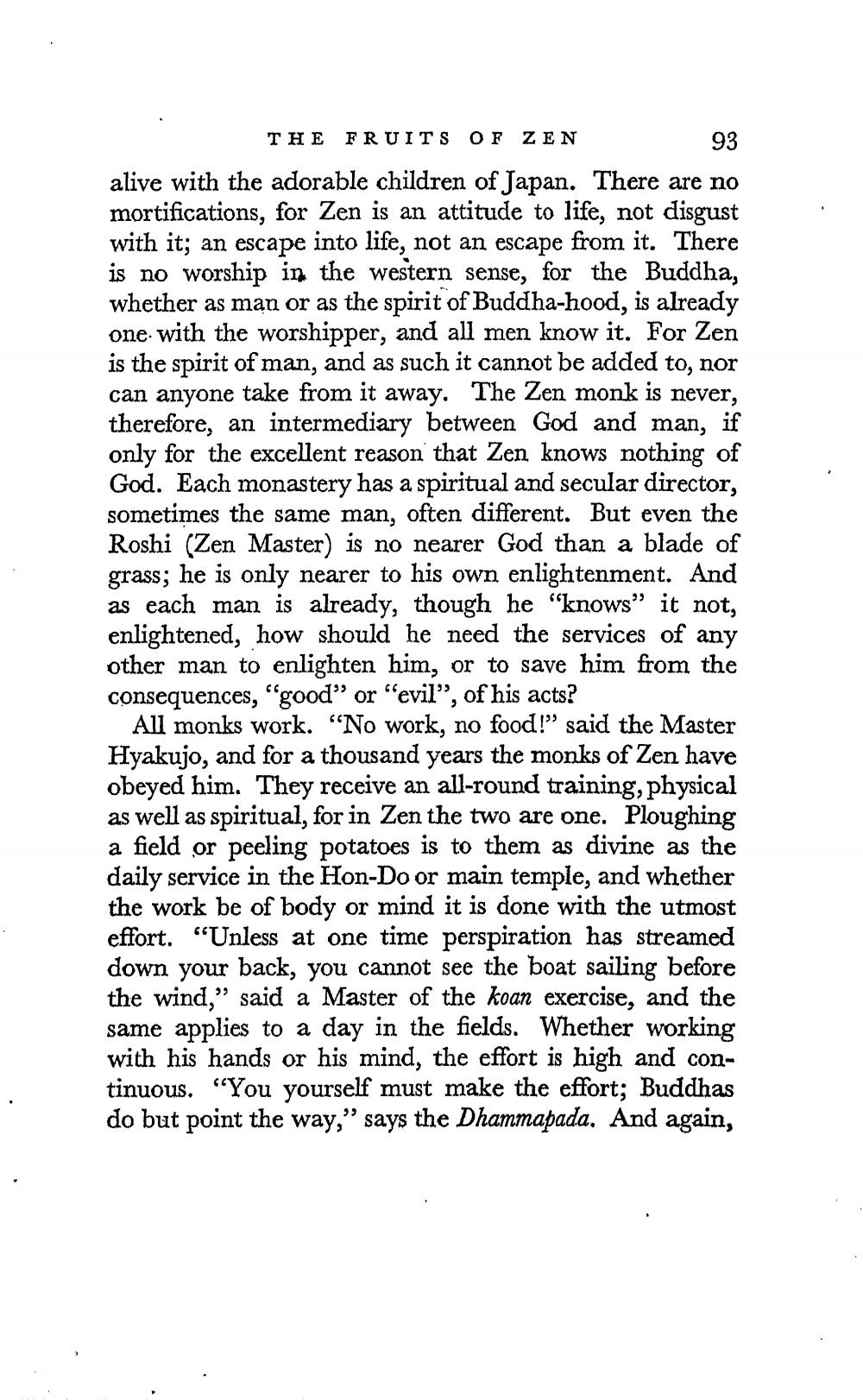________________
THE FRUITS OF ZEN
93 alive with the adorable children of Japan. There are no mortifications, for Zen is an attitude to life, not disgust with it; an escape into life, not an escape from it. There is no worship in the western sense, for the Buddha, whether as man or as the spirit of Buddha-hood, is already one with the worshipper, and all men know it. For Zen is the spirit of man, and as such it cannot be added to, nor can anyone take from it away. The Zen monk is never, therefore, an intermediary between God and man, if only for the excellent reason that Zen knows nothing of God. Each monastery has a spiritual and secular director, sometimes the same man, often different. But even the Roshi (Zen Master) is no nearer God than a blade of grass; he is only nearer to his own enlightenment. And as each man is already, though he "knows it not, enlightened, how should he need the services of any other man to enlighten him, or to save him from the consequences, "good" or "evil”, of his acts?
All monks work. “No work, no food!” said the Master Hyakujo, and for a thousand years the monks of Zen have obeyed him. They receive an all-round training, physical as well as spiritual, for in Zen the two are one. Ploughing a field or peeling potatoes is to them as divine as the daily service in the Hon-Do or main temple, and whether the work be of body or mind it is done with the utmost effort. "Unless at one time perspiration has streamed down your back, you cannot see the boat sailing before the wind,” said a Master of the koan exercise, and the same applies to a day in the fields. Whether working with his hands or his mind, the effort is high and continuous. “You yourself must make the effort; Buddhas do but point the way," says the Dhammapada. And again,




